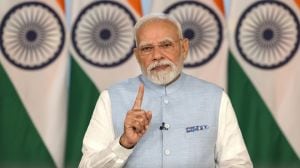Minimum investment entry for auto firms
NEW DELHI, Nov 25: In a sudden burst of decision-making, the Cabinet today cleared a clutch of important foreign investment projects and ou...

NEW DELHI, Nov 25: In a sudden burst of decision-making, the Cabinet today cleared a clutch of important foreign investment projects and outlined a new policy for automobile joint ventures.
Amid the prevailing political chaos, the Cabinet found time today to clear a $ 584 million liquefier natural gas terminal project by the Ispat Group, amendments in the joint venture agreement of the Tata Group with Bell Canada, fresh investment from Hughes Ispat and allowed Pepsi Cola India to increase investment in India from $ 255 million to $ 405 million. It has also allowed PepsiCo to take increased equity in bottling operations and subsidiaries provided it reduced the stake to 51 per cent in five years.
The Cabinet Committee on Economic Affairs (CCEA) approved a new automobile policy making it mandatory for the foreign partner to bring in equity of $ 50 million within three years of the start of operation if the joint venture involves majority foreign equity ownership. This will apply to only new joint venture companies.
The CCEA also reviewed the signing of memorandum of understanding (MOU) between the Director General of Foreign Trade (DGFT) and the joint venture motor vehicle manufacturers for granting licenses for importing kits in CKD or SKD (completely knocked down or semi-knocked down) form, according to the official release.
The new policy stipulates that the manufacturers will have to indigenise components to a minimum level of 50 per cent in the third year and 70 per cent in the fifth year.
The MOU between the DGFT and the company will have to be signed on the following five parameters: 1) Equity investment by the foreign joint venture partner, 2) production planning, 3) level of indigenization, 4) projected outflow of foreign exchange on account OFG imports, and 5) projected export earnings from exports of intermediate and final goods.
The MOU will insist on establishment of actual production facilities, indigenization of components upto a minimum level of 50 per cent in the third year or earlier from the date of clearance of the first import consignment of kits. Once the MOU signing firm has reached an indigenization level of 70 per cent there will be no need for further import licenses from DGFT. They will be allowed to go outside the ambit of the MOU.
Regarding export obligation the company will have to achieve a broad neutralisation of foreign exchange over the entire period of the MOU in terms of balancing between the actual CIF value of imports and the FOB value of exports of the cars and components. The period of export obligation would commence from the third year of commencement of production.
The date of commencement of production will be deemed to be the date of first release of consignment from factory after the payment of excise duty but there would be a moratorium of two years from this particular date of commencement of production during which the firm need not fulfil any export obligation. However, from the third year onwards (effective from the date of release of first consignment) the MOU signing firm will have an export obligation for the remainder of the MOU period till they complete the entire export obligation.
From the fourth year onwards the value of imports of the kits will be regulated with reference to the export obligation fulfiled in the previous year as per the MOU. The export committment would be met by export of cars as well as auto components. The export obligation will be over and above the EPCG related export obligation.
The MOU scheme will be enforced through the import licensing mechanism and MOU signing firms would be granted import licenses by DGFT based on the given parameters.
To monitor the progress the companies will have to submit annual reports to the DGFT on all the parameters and review of the progress made in respect of these parameters will be undertaken by the Commerce Ministry, DIPP and Department of Revenue.
The revised guidelines will apply to all existing and future entrants into this sector.
Companies planning to set units for under foreign collaboration for light or heavy commercial vehicles, tractors, earth moving equipment and other such heavy category vehicles will not be required to sign any MOU.
Among the foreign investment projects cleared the LNG terminal by Ispat Industries is the most significant. The Ispat group has proposed to set up an integrated industrial complex near Kakinada, including a LNG terminal of 2.5 million tonnes per annum capacity.
For implementing the project, Ispat group will set up a new company, Ispat Energy Limited, with 100 per cent foreign investment. The foreign equity for the project will be contributed by the Ispat group overseas consortium, non-resident Indians (NRIs) and Overseas Corporate Bodies (OCBs).
The company is in the process of selecting reputed engineering procurement and construction (EPC) contractors to build the terminal on a turn-key basis.
According to the company, the proposal will help liquid fuel based power projects in the State and would result in substantial saving in energy cost to the Andhra Pradesh State Electricity Board.
Photos





- 01
- 02
- 03
- 04
- 05

























